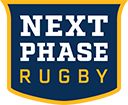COLLEGIATE RECRUITING
OK, now to the different levels:
Club Team, Rec Sports. This is a club team overseen by the on-campus recreational sports department. The students are expected to operate the program, and while the team may have a coach from outside the school, it is the students that advocate for the team with the school administration.
Club Team Rec Sports programs are typically at smaller schools (but not always), and have no influence with the university with regard to admission or scholarships. However, a well-run student-operated team can still be very successful and enjoyable to play for.
Club Team, Club Sports. These teams are still clubs, but the university may have separated out club sports—sports they recognize as competing in a serious way intercollegiately—and may even have paid administrators who help with team operations. Sometimes this is a roundabout way for the school to help provide a stipend for a coach, and these teams are less likely to depend on student officers to handle all logistics and issues with the school.
Club Team Club Sports programs may have a strong alumni base and might be able to offer small partial scholarships that are privately funded. In addition, the school budget to support these teams is probably higher than for rec sports teams, and securing things like an athletic trainer, practice and game fields, and transportation to away games can sometimes be a bit easier.
Elevated Club. An elevated club is a rugby program that officially carries club status on campus, but because of history within the school, success on the field, or, most likely, significant alumni support, the program has enough funding to essentially operate as a varsity program.
That means that they have regular training locations, a paid coach, partial scholarships, and perhaps even a little bit of influence in admissions.
Elevated Club programs typically play at the highest levels of the game, but this isn’t always the case. They can exist at smaller schools as well.
Non-Varsity. Non-Varsity teams are defined by what they are not. They aren’t clubs, but they aren’t listed as official varsity programs either. Many Non-Varsity teams are well-funded, and funded by the school, but, especially when they are men’s teams, they can’t be considered varsity because the school is trying to remain compliant with Title IX benchmarks.
A Non-Varsity team will typically be run by the athletic department, have a paid coach, its kit paid for, travel, medical, and field space provided by the school, and play at the highest level. These times might have restrictions on how coaches can recruit, but those rules are paid down by each individual school.
Varsity-NCAA. About 25 women’s rugby teams operate as varsity programs as recognized by the NCAA. These programs have scholarships, paid coaches, and full funding. They also follow very specific restrictions under NCAA when it comes to seasonality and recruiting.
The NCAA teams play in NIRA—the National Intercollegiate Rugby Association— which has its 15s championship in the fall. Be aware that while the club and non-varsity teams have almost free rein as to how they recruit, NCAA coaches do not. What might be OK for an elevated club coach will not be OK for an NCAA coach.
Varsity Non-NCAA. There is a small but growing number of college rugby teams that are varsity and operate under their athletic departments but aren’t overseen by the NCAA. These are typically men’s teams that have a long history of the game on-campus or have started their program relatively recently in order to use rugby as a way to increase or diversify the student body.
Varsity Non-NCAA teams can be found throughout the rugby spectrum, from small college to D2 to D1AA and D1A. They are much more likely to be men’s teams than women’s teams.
